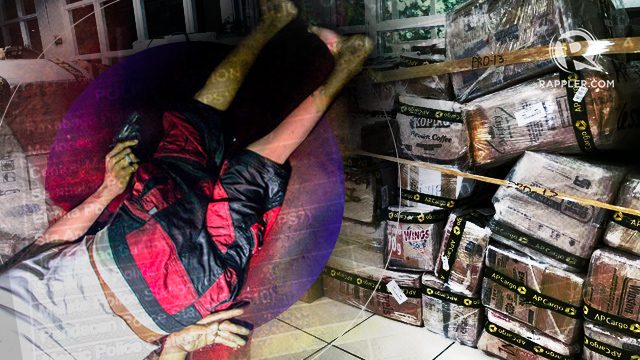SUMMARY
This is AI generated summarization, which may have errors. For context, always refer to the full article.

MANILA, Philippines – In an explosive report released on schedule amid the global coronavirus pandemic, the United Nations Human Rights Office said that Philippine police planted guns as evidence to support their “nanlaban (fought back)” narratives against drug suspects they killed in operations.
“The UN Office of the High Commissioner for Human Rights (UN OHCHR) found that the police repeatedly recovered guns bearing the same serial numbers from different victims in different locations,” read part of the report released Thursday, June 4.
The report was a result of an inquiry sanctioned by the the UN Human Rights Council (HRC), and which was slammed by Philippines, whose government threatened “far reaching consequences” against member countries that voted in favor of conducting the investigation. ()
In a 26-page report, the OHCHR said it examined police documents in 25 operations in Metro Manila, where 45 people were killed.
“OHCHR identified seven handguns with unique serial numbers. Each handgun appeared in at least two separate crime scenes, while two of them re-appeared in five different crime scenes,” said the report.
“The pattern suggests planting of evidence by police officers and casts doubt on the self-defence narrative, implying that the victims were likely unarmed at the time of killing,” the report added.
Neutralize
In the same 25 operations that the OHCHR studied, police referred to 34 killings as “neutralizations.”
Neutralize has no legal meaning, but it appears in former police chief and now Senator Ronald Bato Dela Rosa’s circular.
Petitioners have told the Supreme Court that the circular’s use of the word “neutralize” basically authorized policemen to kill, which is illegal. Police manuals say enforcers can only use of force and weapon on a suspect for the purpose of overcoming resistance. Nowhere in the manual does it say “kill.”
“Such ill-defined and ominous language, coupled with repeated verbal encouragement by the highest level of State officials to use lethal force, may have emboldened police to treat the circular as permission to kill,” said the OHCHR’s report.
During oral arguments in the Supreme Court in 2017, now retired associate justice Francis Jardeleza said Dela Rosa’s circular violated Republic Act 7438 or the law on custodial investigations.
The Duterte government tried to fix the legal loopholes of its drug war by issuing corrective circulars along the way, but not before more than 6 million houses were subjected to Oplan Tokhang and tens of thousands were left dead in the drug war.
The petition is still pending before the Supreme Court, but the tribunal now has possession of all the drug war documents that the government tried hard to conceal.
In a preliminary assessment, petitioner Center for International Law (CenterLaw) said the documents were “rubbish.”
The other petitioner, the Free Legal Assistance Group (FLAG), said police followed a cut-and-paste template in which several suspects were reported to have uttered the same phrase “Putang ina, pulis ka” or “Son of a bitch, you’re a cop.”
The OHCHR said this raises “doubts about whether the reports were only filled pro forma.”
“The facts and reality are undeniable and the report has practically rebuffed the Duterte administration of its false narrative and pretensions about human rights,” said Edre Olalia of the Ecumenical Voice for Human Rights and Peace in the Philippines. – Rappler.com
Add a comment
How does this make you feel?
There are no comments yet. Add your comment to start the conversation.